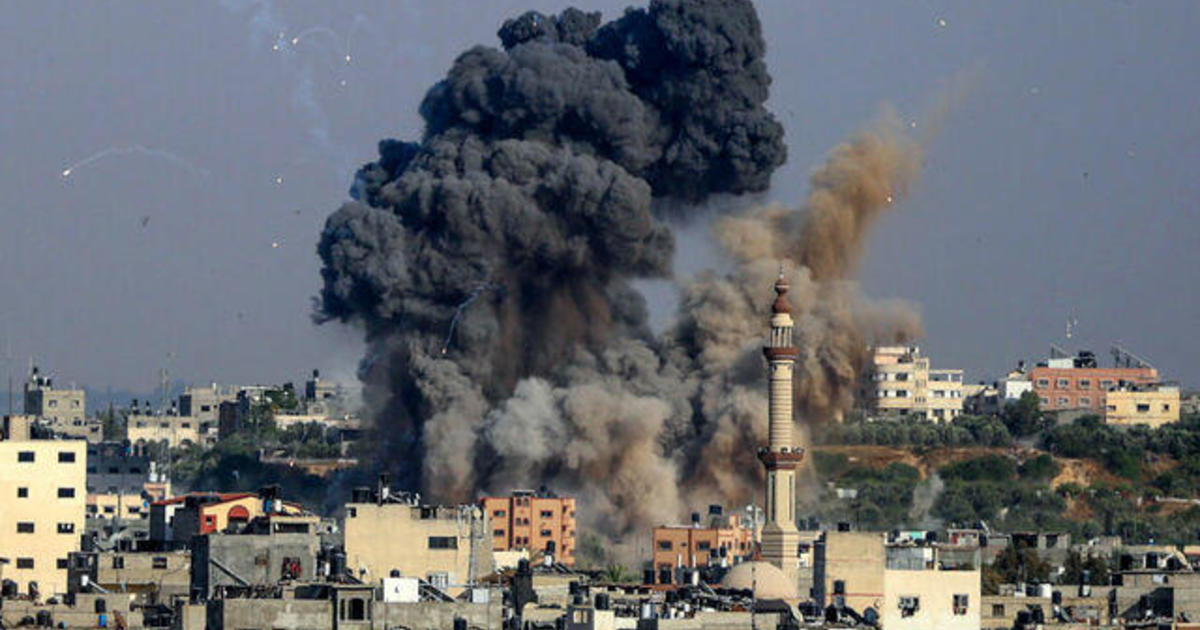
At least 126 Palestinians and seven Israelis have so far been killed in the most severe violence to occur in the region in years. Here's a look at why it's happening.
Why is violence flaring up in Israel and Gaza right now?
There were two main triggers that ignited the current crisis.
Protests erupted after attempts were made to evict a number of Palestinians from their homes in the east Jerusalem neighborhood of Sheikh Jarrah. Those specific evictions have been paused by Israel's Supreme Court, but they're part of a long-term campaign supported by the Israeli government to move Jewish settlers into Palestinian neighborhoods in the disputed area of east Jerusalem, which was occupied after the 1967 war and later annexed by Israel in a move that has not been recognized by the international community.
There were also restrictions imposed on Palestinians during the Islamic holy month of Ramadan, which ended on Wednesday. For years, Israeli-Arabs and Palestinians have gathered at the Damascus Gate entrance to Jerusalem's Old City to celebrate during Ramadan. This year, Israeli police erected barricades in the area and restricted the number of people permitted to enter.
After a series of protests the barricades were removed, but then Israeli police stormed the area around the Al-Aqsa Mosque, also known as the Temple Mount, one of the holiest sites in Islam and Judaism, currently managed by an Islamic endowment called the Waqf. Muslims are allowed to pray there, but Jews and Christians are not. The Israeli police said they were responding to Israeli Arabs having gathered stones to use in a later riot. Palestinian witnesses said fighting began after police entered the compound and fired tear gas, stun grenades and rubber bullets.
Hundreds of Palestinians were injured in the raid. The Israeli police said at least 21 officers were also hurt.
One of the two main Palestinian territories, the Gaza Strip, is run by the Hamas group. Considered a terrorist organization by the U.S. and Israel, Hamas issued an ultimatum to Israel to remove its forces from Sheikh Jarrah and Al-Aqsa. It then started firing rockets into Israel, prompting the Israeli military to launch airstrikes. Tanks have also since been used by Israel to target tunnels that run between Gaza and Israel, according to the Israeli Defense Force.
At least 126 Palestinians in Gaza and seven Israelis have so far been killed.
Hundreds of Palestinians have demonstrated in the West Bank, and at least 11 have been shot and killed by Israeli police during clashes there, according to The Associated Press.
What is different this time?
There has not been such a severe escalation of violence in the region since the Israel-Gaza war in 2014, where 2,251 people were killed in Gaza, 1,462 of them civilians, according to the United Nations. 67 Israeli soldiers were also killed in the fighting, along with six civilians, the U.N. said.
While the last week has seen the most significant rocket fire since then, there's a key distinction between that conflict and the violence playing out now.
Fighting has broken out in mixed Jewish and Israeli Arab communities around the country, with reports of neighbors attacking one another and mob violence. Israeli President Reuven Rivlin likened the situation to a "civil war."
"I can't remember, at least in my lifetime, ever seeing that sort of consequence within Israel's internationally recognized borders, prior to the occupation that began in '67," Dr. H.A. Hellyer, a senior associate fellow at the Royal United Services Institute in London and the Carnegie Endowment for International Peace in Washington D.C., told CBS News.
"This is between citizens of the same country," said Dr. Yossi Mekelberg, an associate fellow at the Chatham House think-tank in London.
Mekelberg said he hoped the unrest wouldn't be used as evidence that Jews and Palestinians simply can't live together.
"They are destined to live in the same place," he told CBS News. "The question is how. It's how to really reconcile and talk to each other about it in a very honest and open way."
"Issues that go back decades"
"The confrontation over the past week isn't about the past week. It's not even about the last few weeks or the last few months," Hellyer said. "There are many underlying issues that go back decades, and the key issue in that regard is the ongoing military occupation of the Palestinian territories, including east Jerusalem, the West Bank and Gaza, and the dispossession and disempowerment of the Palestinians that goes along with it."
Palestinians who are born in east Jerusalem, the West Bank or Gaza are not given Israeli citizenship, though those born in east Jerusalem are given a form of Israeli permanent residency that means they can later apply for citizenship. Many of their day-to-day movements are restricted by Israeli checkpoints.
Mekelberg said these among other inequalities have left an "unresolved, ethno-religious conflict between two communities, which should have been resolved [with] a two-state solution in which there is recognition of the right of self-determination of both. But there is only one country that enjoys self-determination, or group of people, and the other does not."
He said that underlying inequality leaves tensions always simmering just below the surface, and "when something triggers all of these underlying issues, at one point or another, it explodes."
Article From & Read More ( Why is violence flaring up in Israel and Gaza? - CBS News )https://ift.tt/3omwGom
World
Bagikan Berita Ini














0 Response to "Why is violence flaring up in Israel and Gaza? - CBS News"
Post a Comment